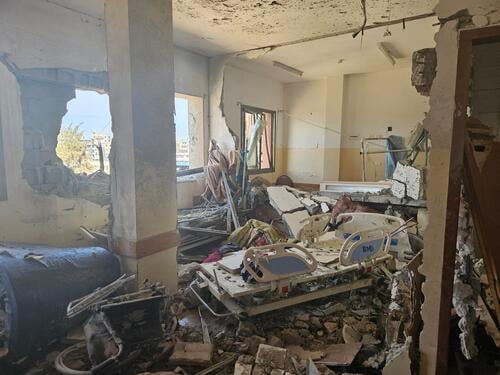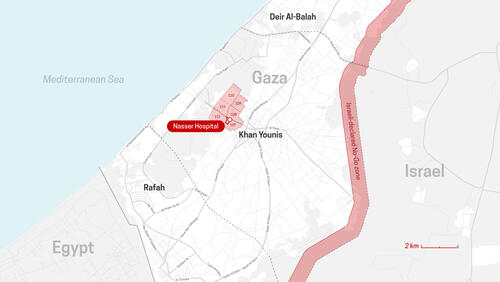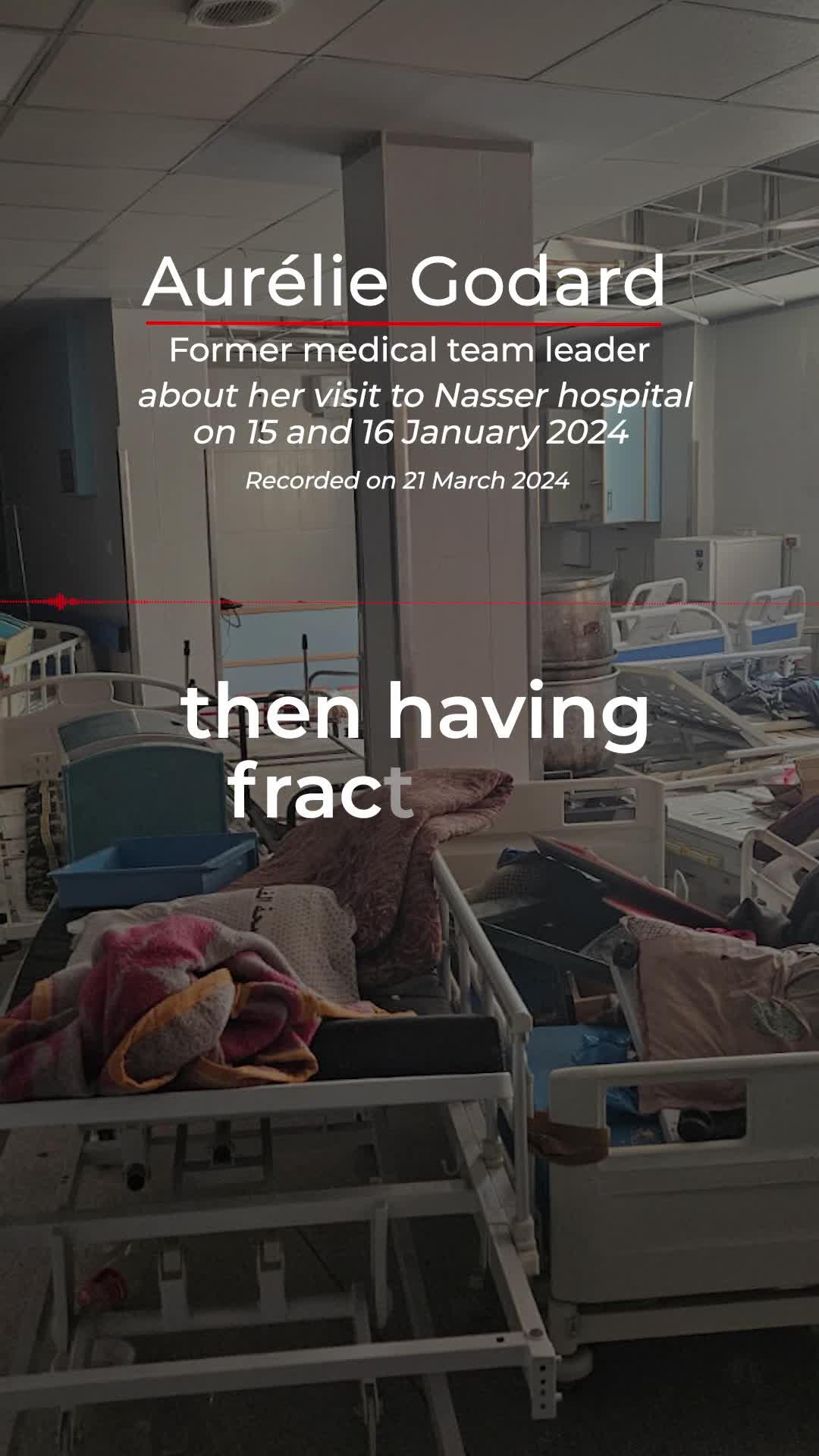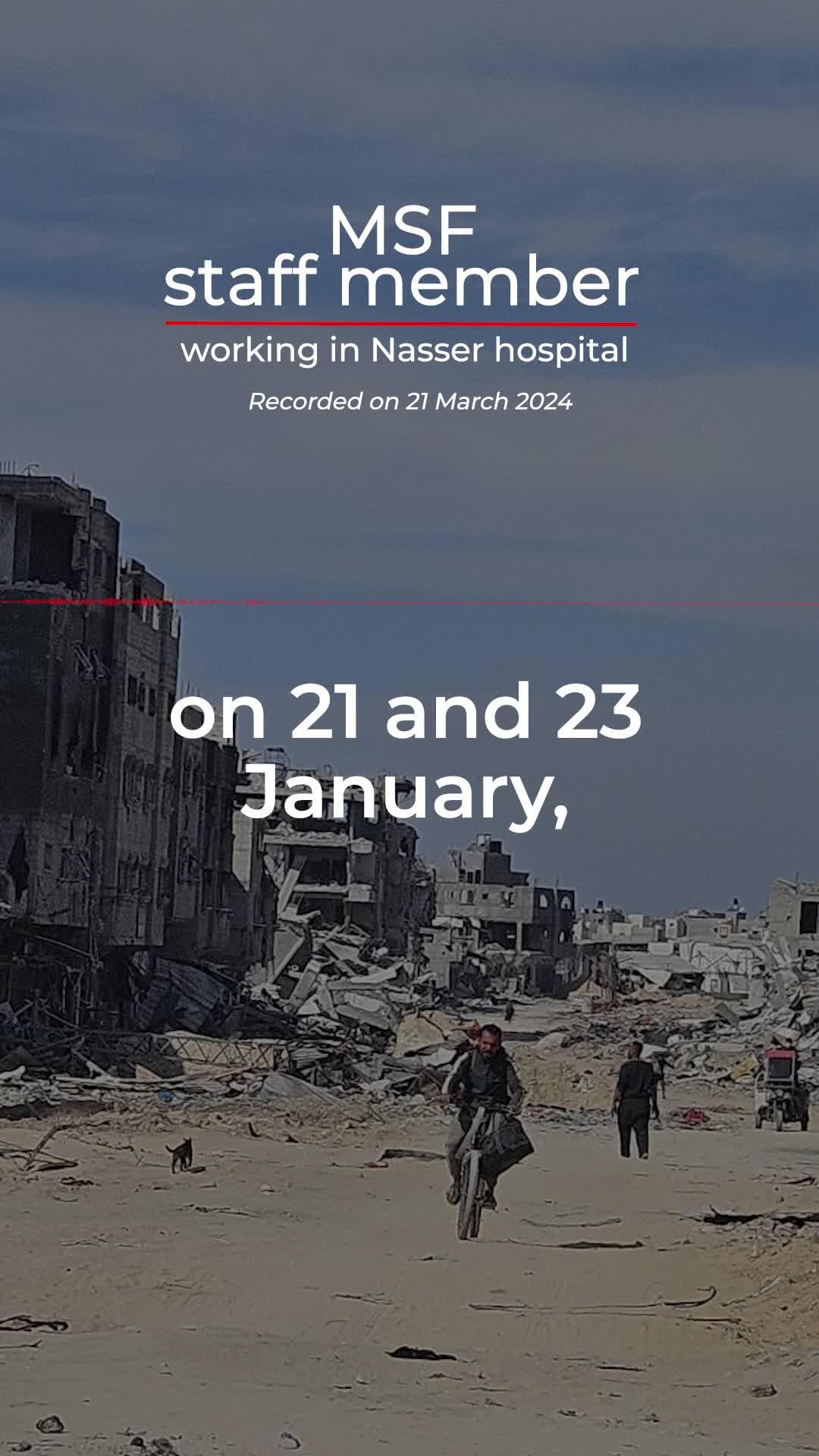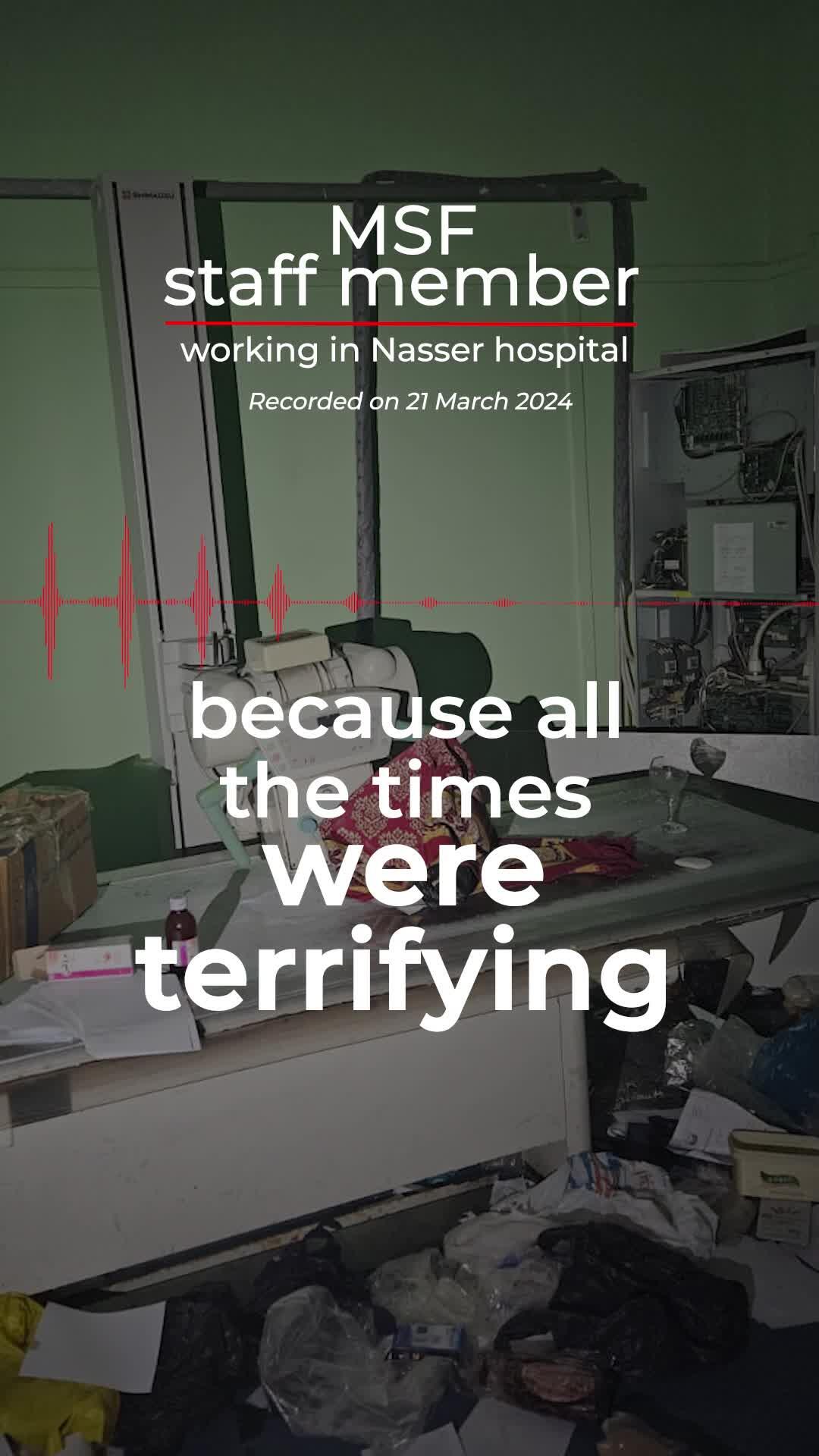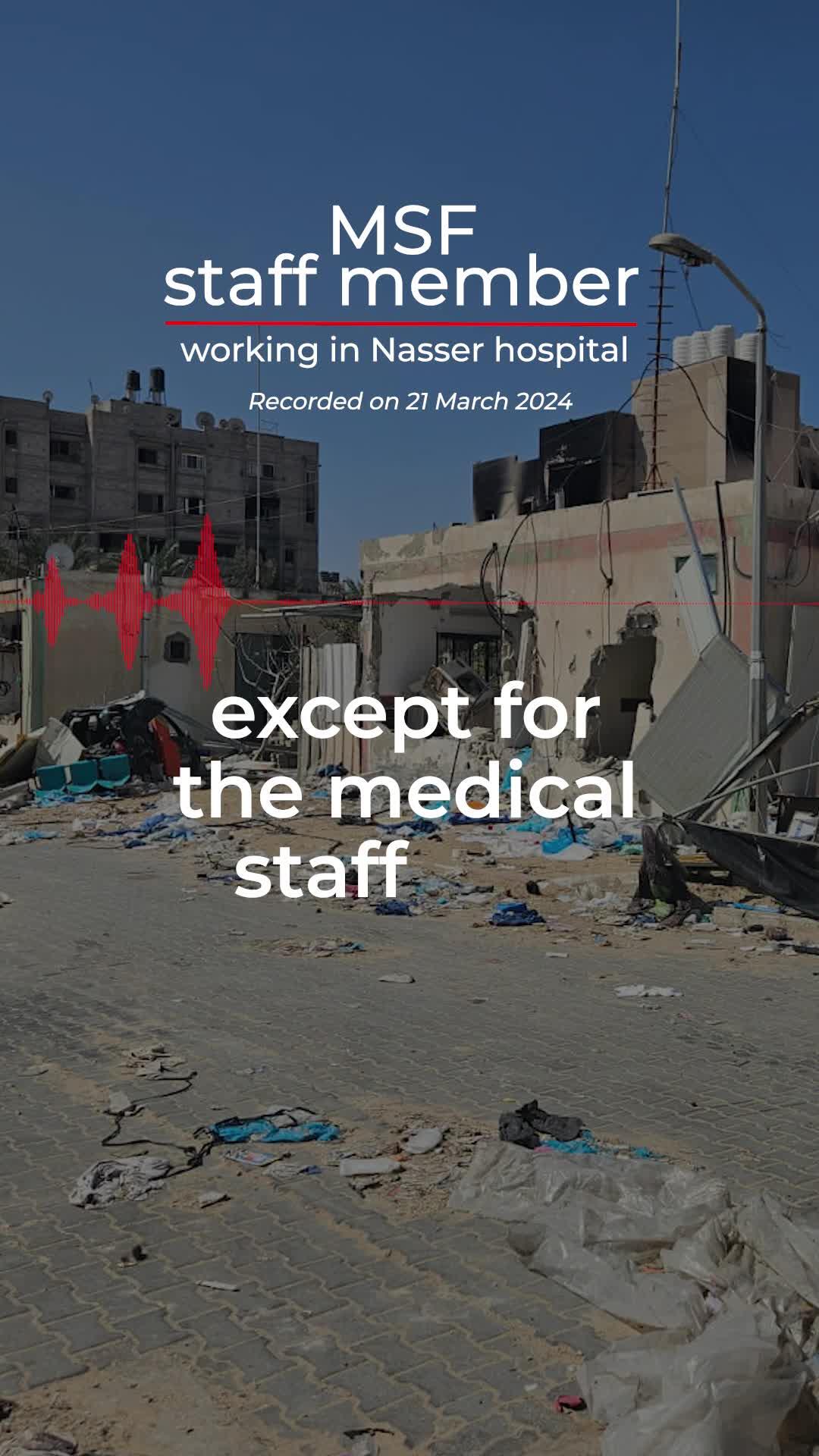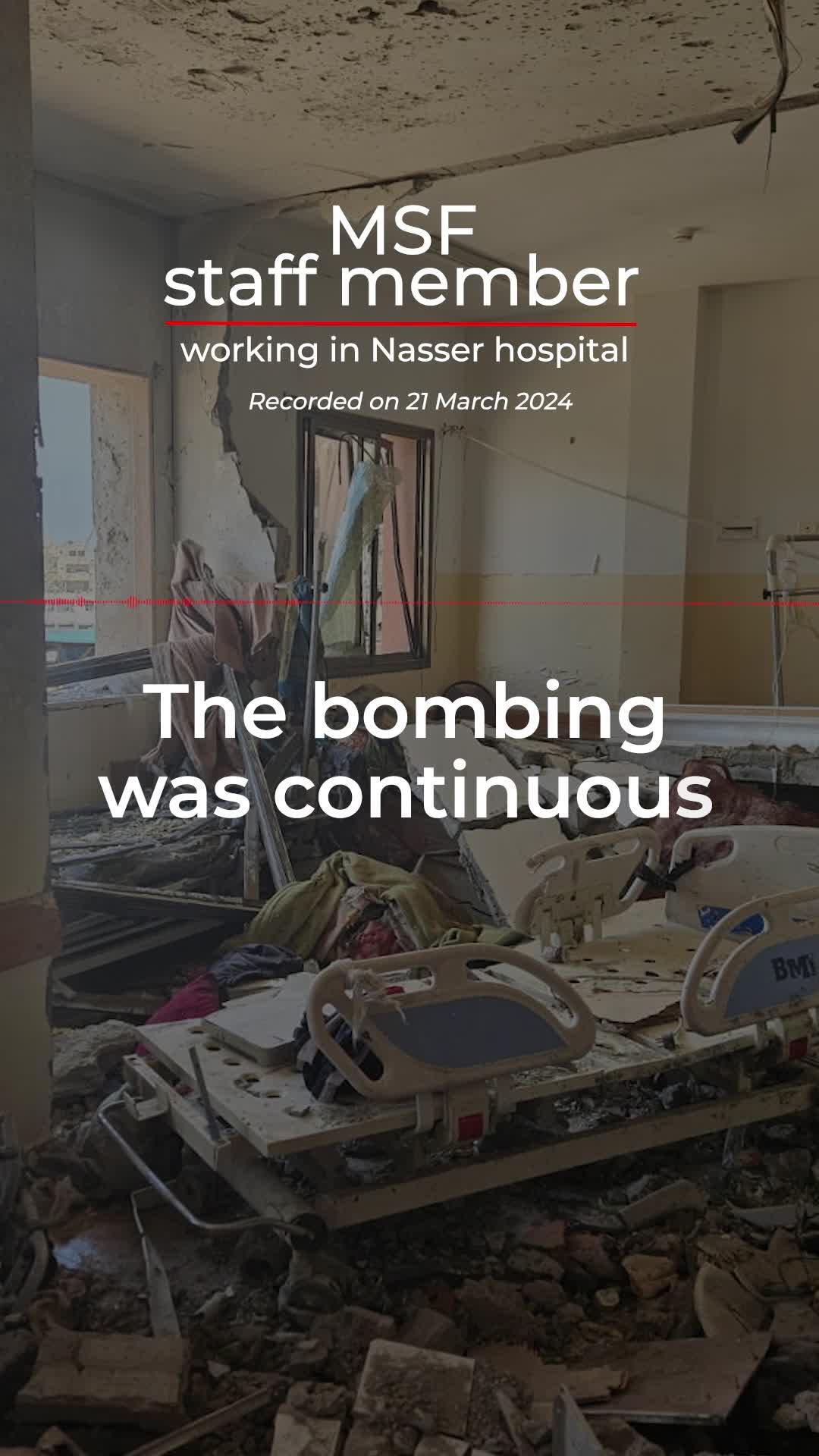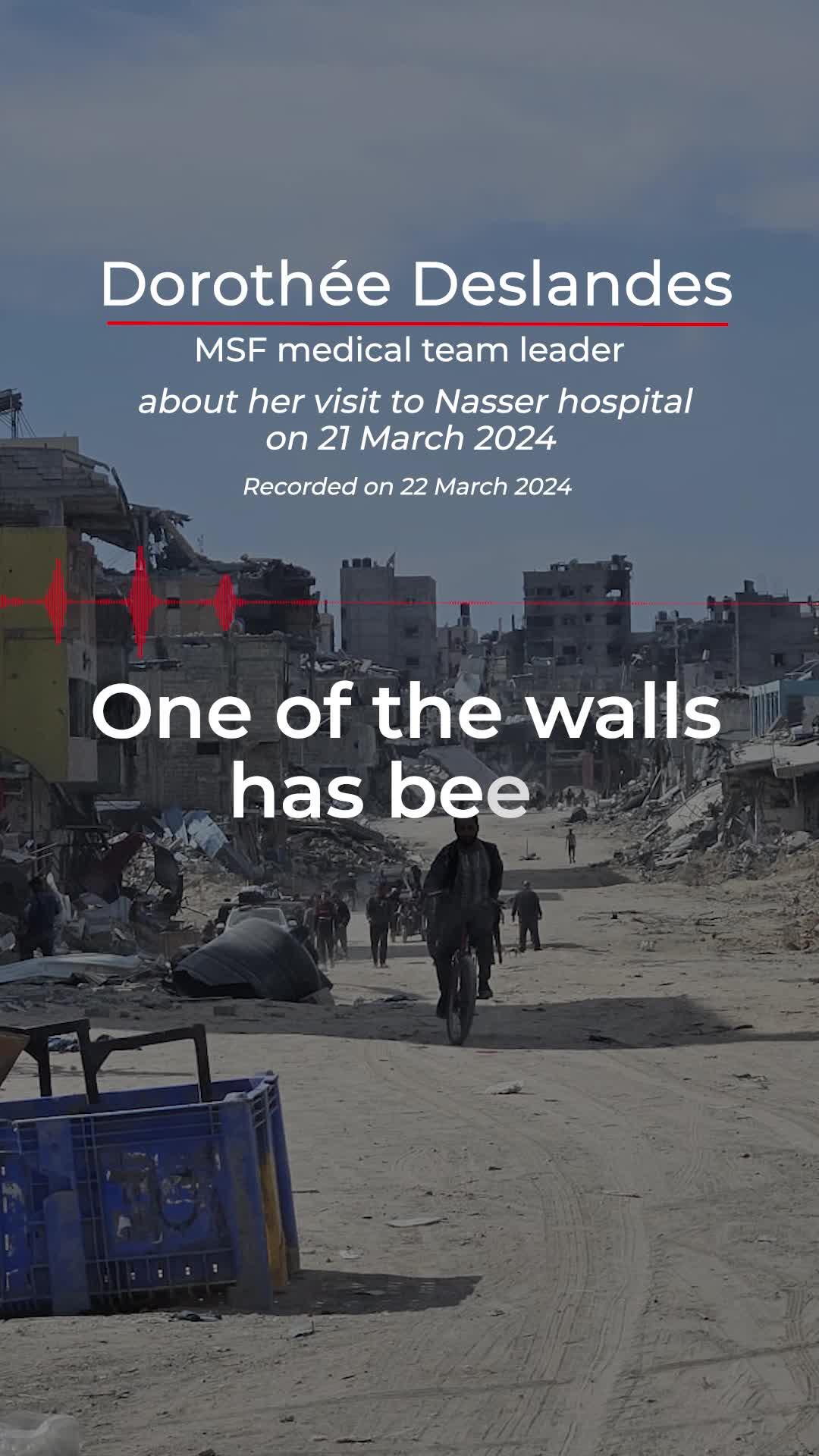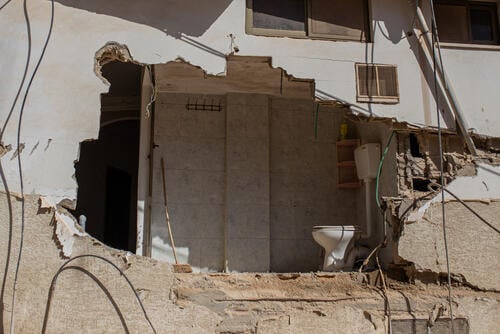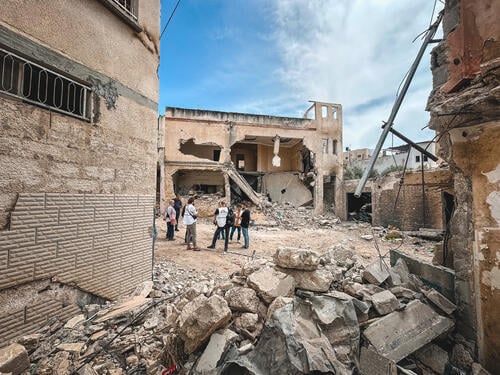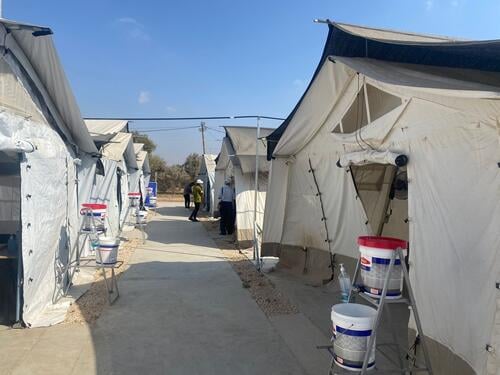On the night of 14 to 15 February 2024, Nasser hospital, once the largest hospital in southern Gaza, was shelled by Israeli forces. The orthopaedic department was hit, killing one person and injuring eight others. After several weeks of intense fighting with Palestinian armed groups in Khan Younis, Israeli forces stormed the facility, which until then had been under siege.
Médecins Sans Frontières (MSF) staff members working at the Nasser hospital were first-hand witnesses. Their accounts, corroborated by other sources, retrace the events leading up to the night of 14 to 15 February and the forced evacuation of the Nasser hospital. The evidence at our disposal points to deliberate and repeated attacks by the Israeli forces against Nasser hospital, its patients and its medical staff. In November 2023, our teams documented similar attacks on Al-Shifa and Al-Quds hospitals, and on Al-Nasr children’s hospital in the north of Gaza.
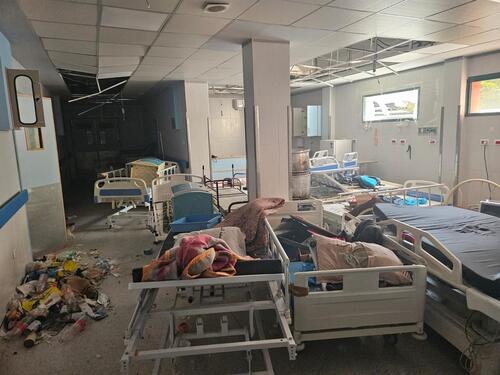
Executive Summary
The sources to which we have had access include first-hand accounts from MSF staff members; exchanges of information between our coordination team in Jerusalem and our teams in Gaza, recorded in the MSF logbook; media and humanitarian organisation publications. All these sources corroborate this story.
In early December, airstrikes and ground fighting intensified in the south of the Gaza Strip, following a seven-day truce that began on 24 November. Many people took refuge in and around Nasser hospital, in Khan Younis. At that time, the medical complex was receiving recurrent mass influxes of wounded; it was also treating displaced people and those who could not be treated elsewhere in Gaza, where two-thirds of hospitals had already been forced out of service.
On 21 January, medical staff reported that the hospital was surrounded by Israeli forces. On 23 January, the Israeli army sent evacuation orders to the residents of blocks 107 to 112, which include Nasser hospital. From that day, the hospital was in the centre of intense fighting and was considered by the medical staff inside to be under siege. No one could enter or leave the hospital without risking their lives and ambulances were denied access.
From 8 February, MSF staff reported sniper fire targeting Nasser hospital, resulting in several deaths and injuries. On 13 February, the Israeli army issued an evacuation order for displaced people who had taken refuge inside the facility but said medical staff, their families, patients and one caretaker per patient were allowed to remain inside the hospital.
On the night of 14 to 15 February, despite security guarantees from the Israeli army that those remaining in the medical complex would be safe, an Israeli shell hit the orthopaedic ward, killing one person and wounding eight others. Israeli forces ordered everyone inside Nasser hospital to evacuate and then stormed the hospital early in the morning on 15 February. Everyone who left the hospital was screened by the Israeli forces and one MSF staff member was detained.
As of 2 April, he is still being held in Israel, and we still have no news from him [edit 15 April: he has since been released]. In the days following 15 February, patients were evacuated in small groups to several nearby field hospitals. On 22 February, the Israeli army withdrew from Nasser hospital and left it severely damaged and unable to function.

Leo Cans, MSF head of mission in Palestine
According to the World Health Organization, only a third of Gaza's hospitals are partially functional. Between 7 October 2023 and 12 March 2024, there have been 410 attacks on healthcare reported by the Ministry of Health and the WHO.
MSF reiterates its call for an immediate, sustained ceasefire in Gaza – the only way to bring an end to the massacre of civilians and to allow humanitarian organisations to respond to the immense needs of a terrified, starving and exhausted population.
*The MSF logbook is an internal document in which daily information is recorded relating to the management of MSF projects. It includes the medical activities of teams working in Gaza's health facilities, security incidents, patient evacuations via Rafah and fuel supplies. It reflects the exchange of information between MSF’s coordination team in Jerusalem and MSF’s teams in Gaza.



